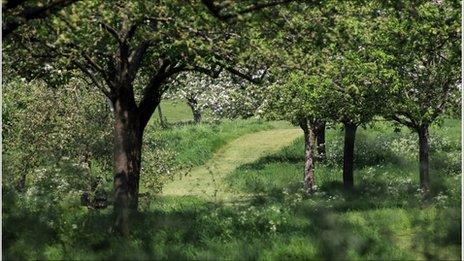Boom in small orchards revives 'hundreds' of lost apple varieties
- Published
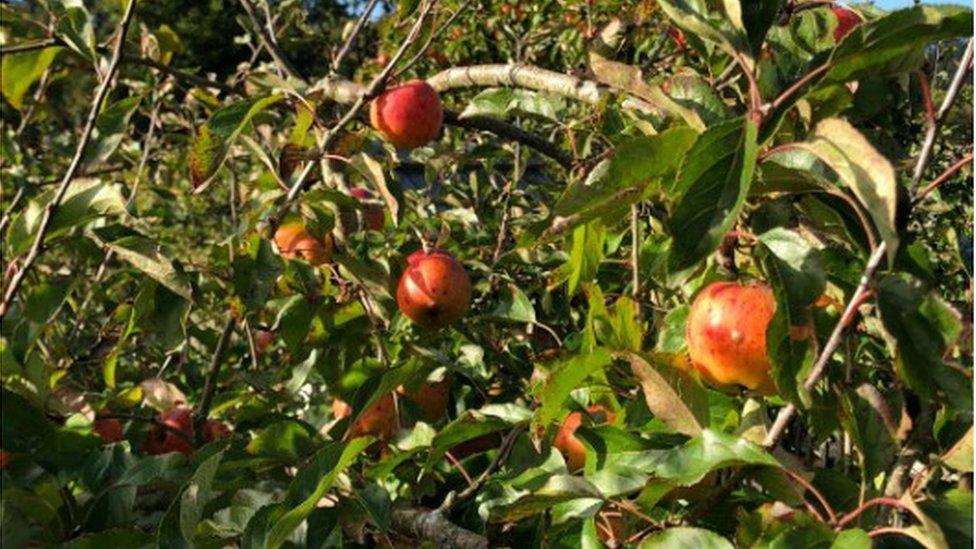
Arlingham Schoolboys, Ashmead's Kernel and Kidd's Orange Red are all making a comeback
Hundreds of neglected heritage apple varieties are being revived due to the rise of community orchards.
Regional varieties, such as Arlingham Schoolboys and Ashmead's Kernel, are thriving as keen apple growers plant trees unique to a particular area.
Apple hunters are even rediscovering local varieties, many of which have never been recorded.
"Around 600 are not on the National Fruit Collection," says the People's Trust for Endangered Species (PTES).
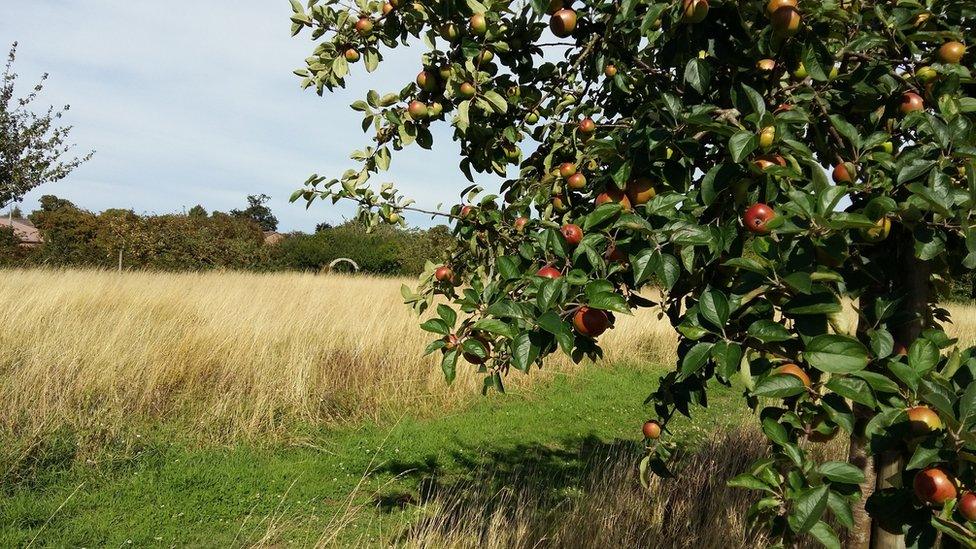
The Stoke Red cider apple first came to prominence in Rodney Stoke in Somerset in the 1920s
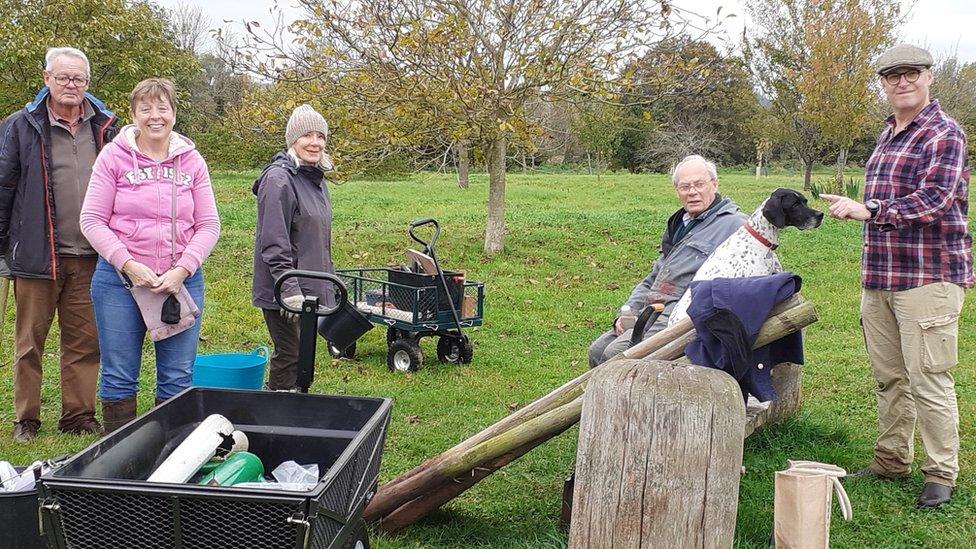
Volunteers at Frieze Hill Community Orchard in Somerset tend 270 heritage apple trees
In Somerset, more than 156 varieties of apple are recorded as having a connection with the county. Yet dozens have been lost as more than 50% of Somerset's orchards have gone in the last 50 years.
At Frieze Hill Community Orchard in Taunton, one of the members, Margaret Gibson, said: "Our orchard is the revival of one established during World War I. The land lay unused after the war, but the orchard now has 270 fruit trees." Many of these are heritage varieties with echoes of local places, such as Kingston Black, Taunton Cross, Beauty of Bath and Yarlington Mill. Last year a Hoary Morning variety, first grown in Somerset in the 1800s, was propagated.
"The spirit which existed 100 years ago still lives on strongly through the orchard," she added.
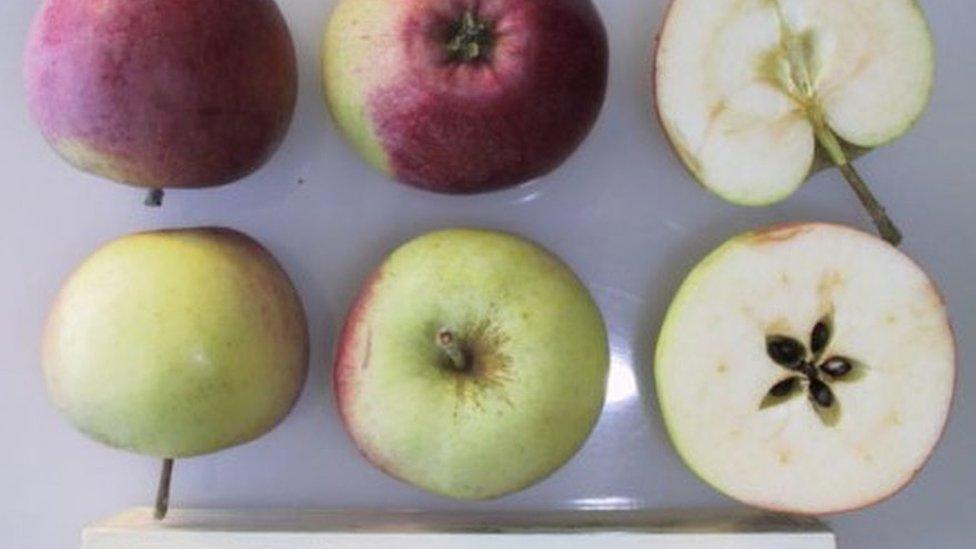
The Yarlington Mill heritage apple was first discovered growing out of a wall in a Somerset water mill in 1898
The National Fruit Collection, external (NFC) has around 2,200 varieties listed in its archive.
Steve Oram, from PTES, said: "The NFC holds a fruit gene pool that can be used for breeding commercially viable cultivars.
"However, although many varieties may not be considered valuable, they can be historically meaningful to a local community. Some recent rediscoveries have been very exciting," he added.
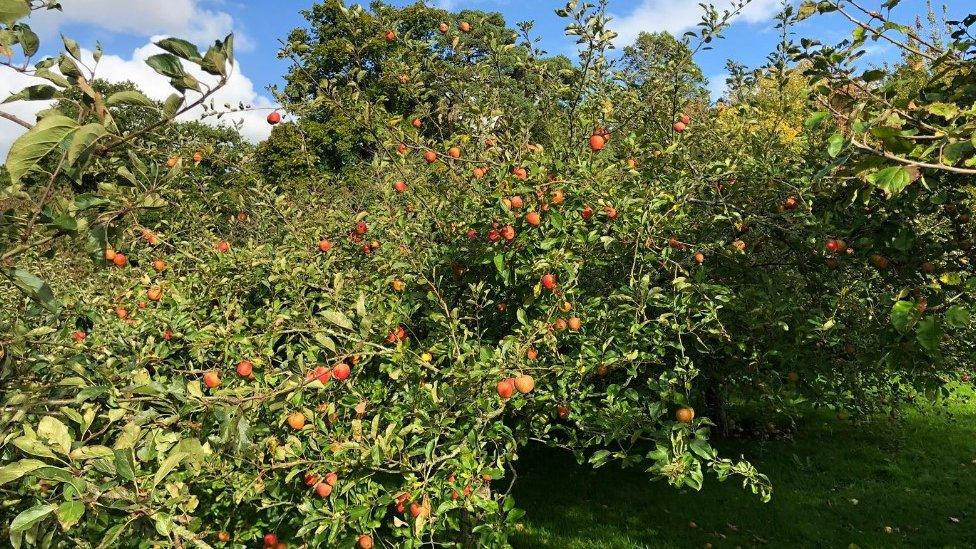
The Common Ground environment group designated 21 October as an annual Apple Day in 1990.
A 2022 survey by the National Trust showed that traditional orchards in England and Wales have declined by 81% (78,874 hectares/194,902 acres) since 1900 due to changes in farming and urbanisation. The biggest decline has been in the South West.
However, the Royal Horticultural Society, external has seen a growing interest in the cultivation of traditional orchards, often planted and managed by a group of dedicated volunteers who are passionate about the country's fruit heritage.
"There have been centuries of expert apple breeding in the South West," said Pete Adams, Edibles and Nursery Team Leader, RHS Rosemoor.
"Each area has its own unique microclimate. If you want to set up an orchard, go to places that have a collection of fruit that is performing well in the region where you're looking to plant, or consult the UK Orchard Network, external for suggestions of suitable regional varieties."
Historic maps or horticultural archives often hint at the presence of ancient varieties, perhaps only surviving in the imagination as place names, or in folklore.
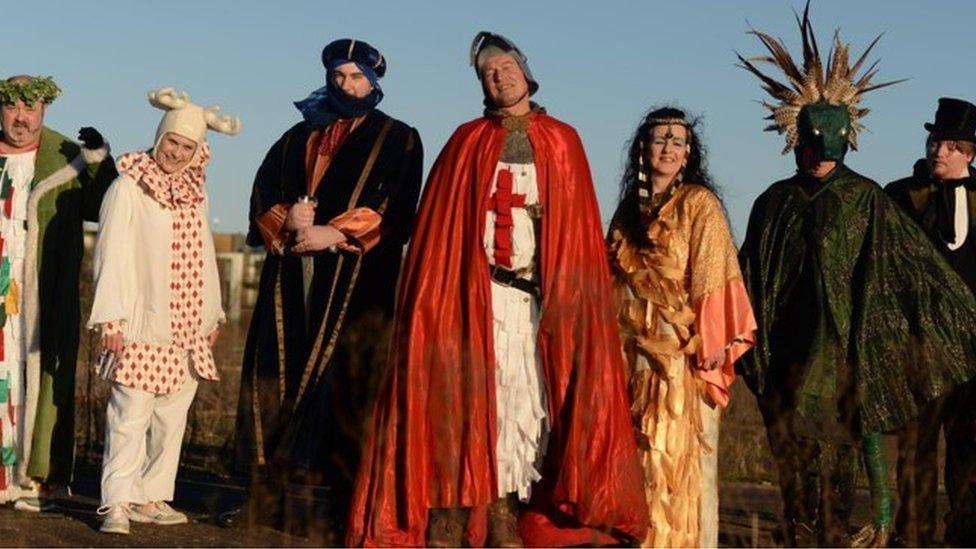
Many community orchards host traditional wassailing events with mummers' plays to celebrate Twelfth Night
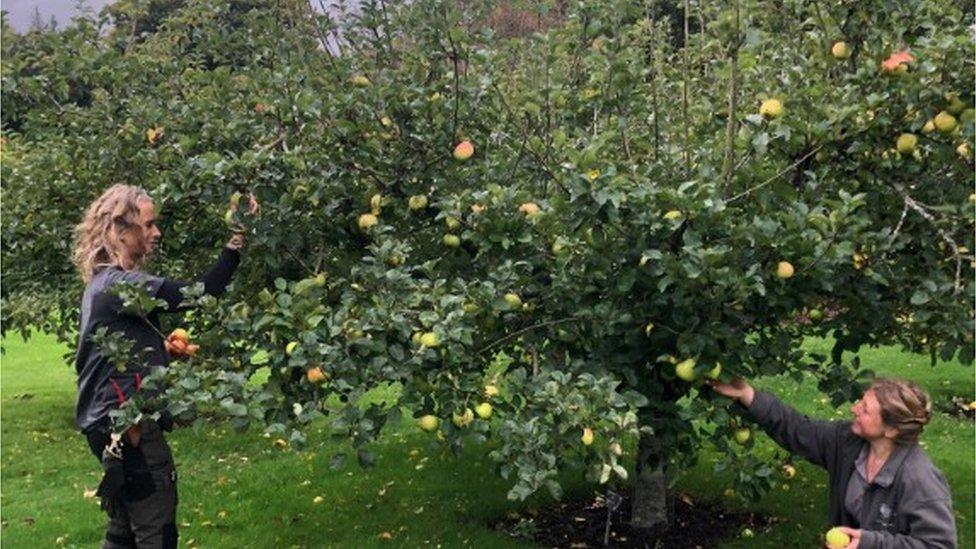
Heritage apple varieties with russeting on their skins and bitter tannins can be healthier than commercial ones
Tom Adams, from the Marcher Apple Network: "I'm a bit of an apple detective. I've been interested in old varieties all my life.
"I showed some fruit to a botanist, who was very curious about a single tree bearing bright yellow apples. It took DNA testing to identify the variety as a Bringewood Pippin, raised by the horticulturist Thomas Andrew Knight around two hundred years ago. This could well have been the only tree left of its kind in the country.
"The depth of flavours in these heritage varieties are not found in apples on the supermarket shelves. The russeting on the skin and bitter tannins is where you find the health benefits of anti-oxidants.
"Hundreds of varieties are at significant risk of being lost. A lot of heritage varieties are known to be surviving as only one or two trees in a private garden. To lose these trees could wipe out a whole variety of apple," added Mr Adams.
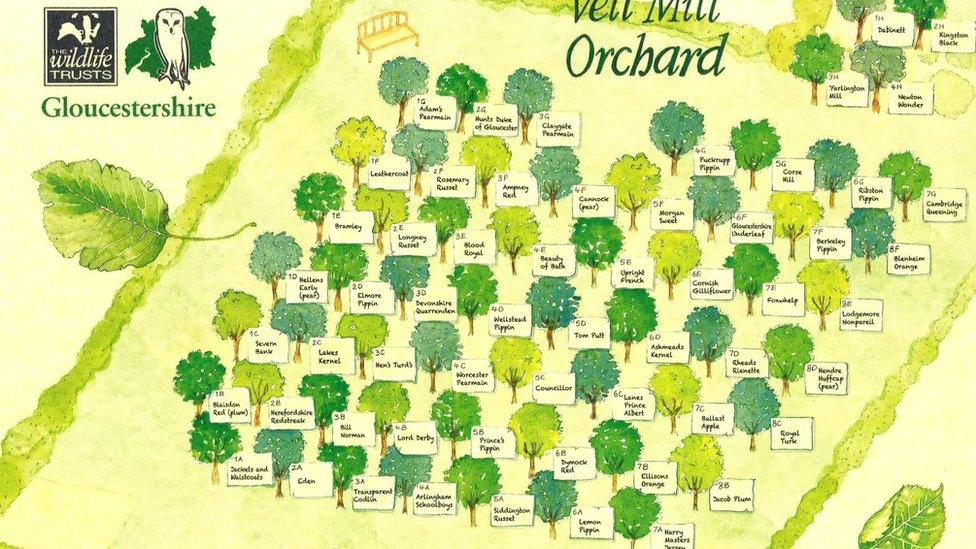
Heritage tree saplings can be sponsored at Vell Mill Orchard in Dymock, which is managed by the Gloucestershire Wildlife Trust
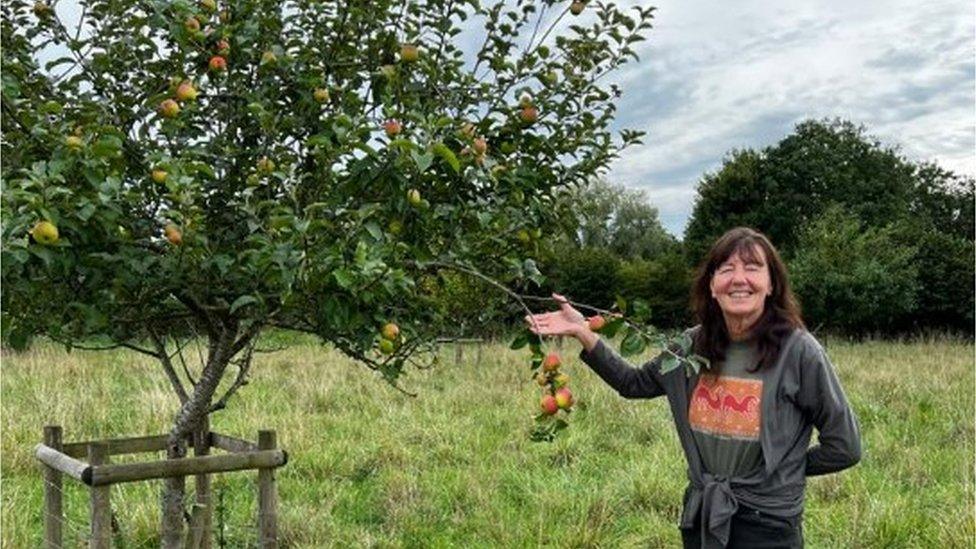
Alexis Cassin from Cheltenham sponsors this Gloucestershire Underleaf tree at Vell Mill Orchard. This year there is a bumper crop to pick
In Gloucestershire, 75% of orchards have been lost in the last 50 years. Despite this decline, the county still has areas where orchards form a strong, traditional landscape.
At Vell Mill Orchard, external near Dymock, 60 heritage apple varieties have been planted and tree saplings can be sponsored by the public. Alexis and Brian Cassin from Cheltenham bought a Gloucestershire Underleaf variety when their son died. Mr Cassin said: "Not only is it lovely to have a tree in memory of Ashley, but every spring we come and enjoy the orchard filled with wild daffodils."
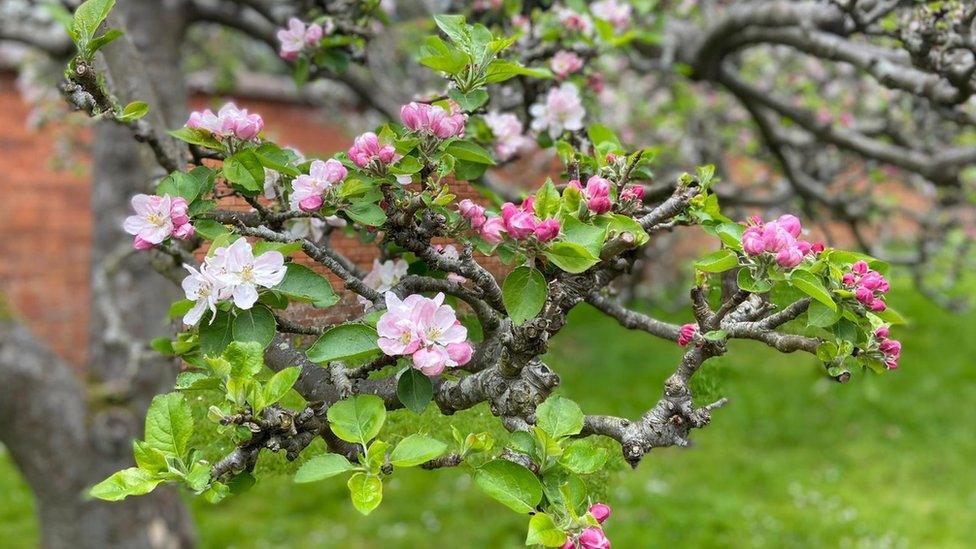
Traditional orchards attract 1,800 species of plants, fungi, animals, birds and reptiles
The Gloucestershire Orchard Trust is dedicated to the conservation of traditional orchards and gives advice to groups wanting to set one up.
Ann Smith, GOT coordinator said: "We play a leading role in conserving the genetic characteristics of the approximately 70 apple varieties that are unique to Gloucestershire."
Many of the varieties have names that reflect their origins within the county such as Chaxhill Red, Arlington Pippin, Severnbank and Gillyflower of Gloucester.
The PTES acknowledges that the steep decline in traditional orchards will continue apace, but enthusiasts are contributing in some small way to the survival of Britain's fruit heritage.
In 1990, 21 October was designated as an Annual Apple Day by the Common Ground, external environment group. Orchards host events such as wassailing and allow people to scrump for apples to press into juice.

Follow BBC West on Facebook, external, Twitter, external and Instagram, external. Send your story ideas to: bristol@bbc.co.uk , external
Additional reporting by Ben Prater and Deborah Collins.
Related topics
- Published17 June 2022
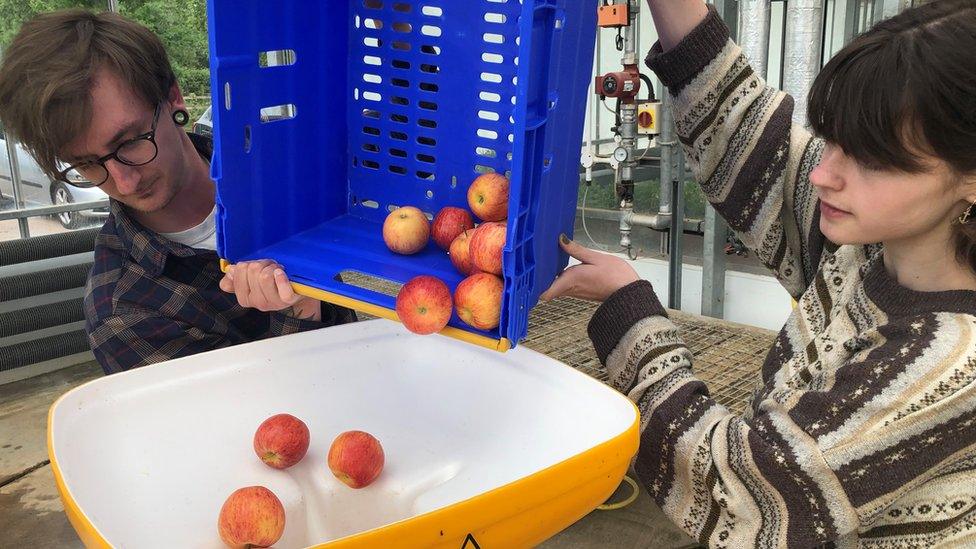
- Published26 May 2021
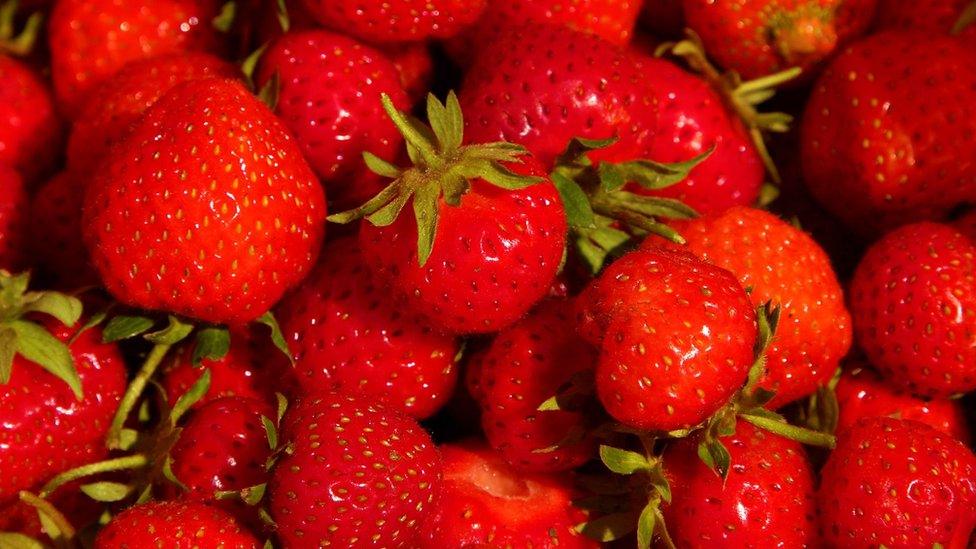
- Published22 September 2020
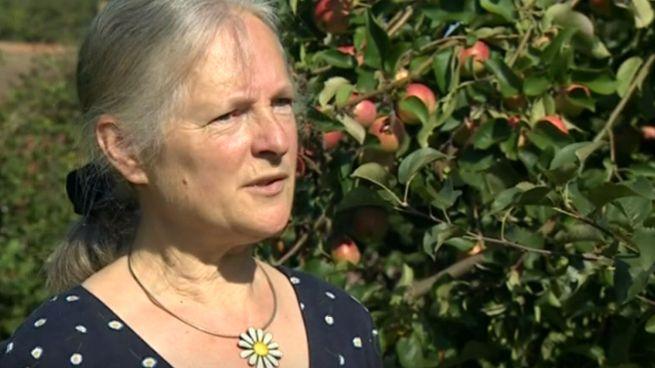
- Published28 January 2013
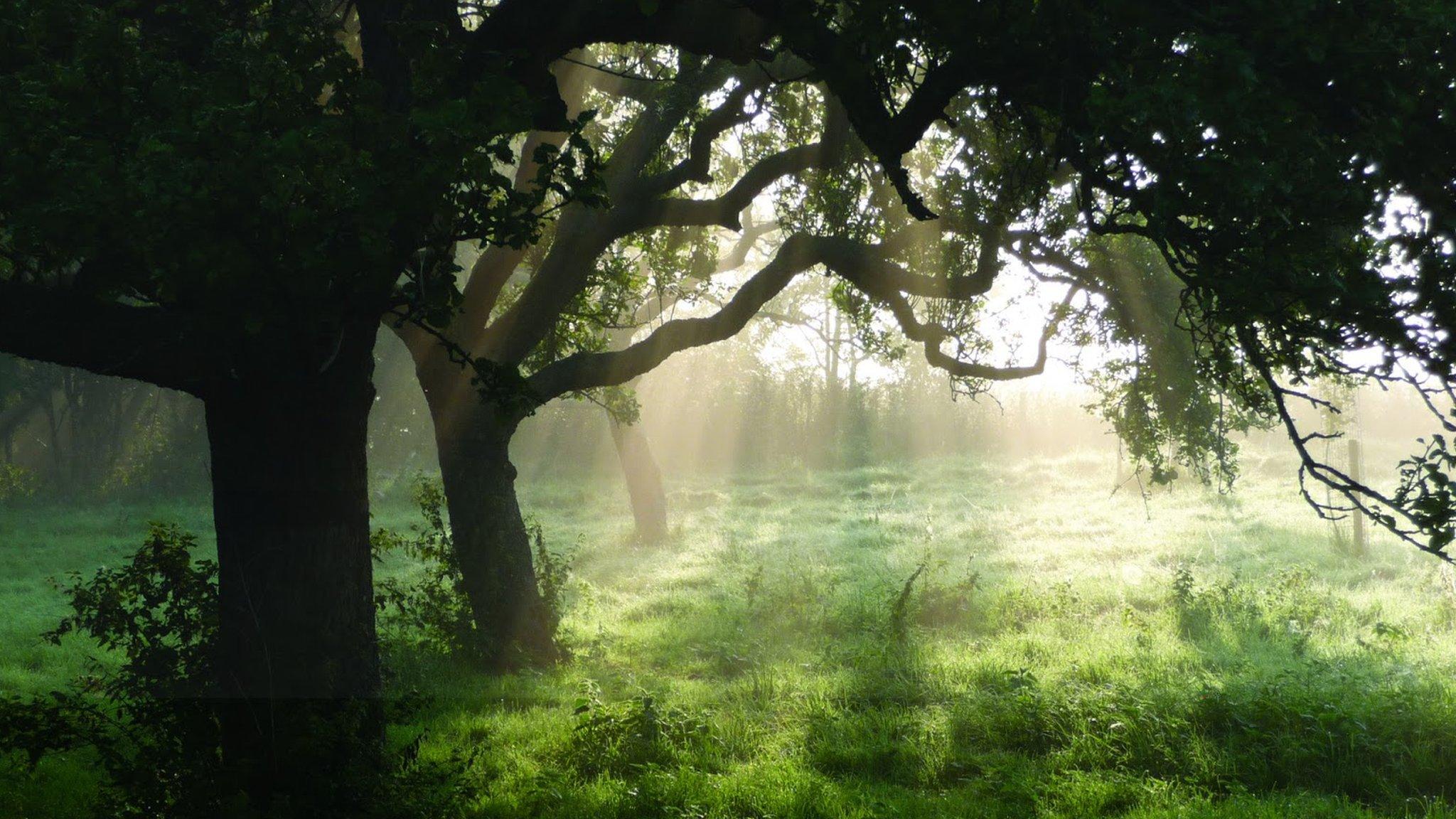
- Published5 May 2011
